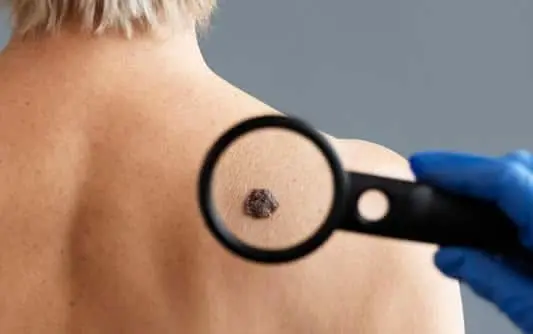Frequency of Moles Examination
Consistent Self-Checks:
- It’s vital for individuals with moles to conduct regular self-examinations at home.
- It is recommended to inspect moles ideally on a monthly basis.
- Incorporating mole assessments into a daily regimen can be beneficial, such as after bathing.
Indications for Professional Assessment
Factors to Consider:
- Some individuals may necessitate professional mole evaluations, particularly if they have a heightened risk of developing skin cancer.
- People with fair hair, eyes, or pale skin that is prone to sunburn.
- Those with numerous freckles or a history of sunbed use.
- Individuals with a substantial number of moles (100+) or moles larger than 6mm in diameter.
- Individuals with a personal or familial history of melanoma or those taking medications that weaken the immune system.
Another indication for professional mole evaluation is if a mole undergoes changes in appearance. New marks, discoloration, alterations in shape, or irregular outlines should prompt a professional assessment. These changes could signal a malignant melanoma, requiring mole examination and potential biopsy. Detecting melanoma early enhances treatment prospects, as early-stage melanomas can often be surgically removed to prevent further spread.
It’s important to note that not all moles are visible, such as those on the back. Individuals, especially those with many moles, may have hidden moles that are challenging to monitor. Periodic mole screenings with professionals are recommended for these individuals.
Identification of Hazardous Moles
The ABCDE protocol aids in recognizing potential melanomas. Healthy moles typically exhibit symmetrical shape, uniform color, smooth edges, and a diameter of 6mm or less. Any mole deviating from these parameters should be evaluated by a dermatologist to determine if a biopsy is necessary.
A biopsy involves surgically removing a suspicious mole for examination. Through biopsy, dermatologists can determine if the pigmented lesion is cancerous and whether the melanoma has spread to nearby lymph nodes (sentinel node biopsy).
Regular mole checks are essential for maintaining skin health and preventing melanoma spread. In addition to monthly self-examinations, seeking professional evaluation is crucial if any suspicious moles or pigmented lesions are observed.
Schedule a appointment today with Dermatologist in Northridge.

